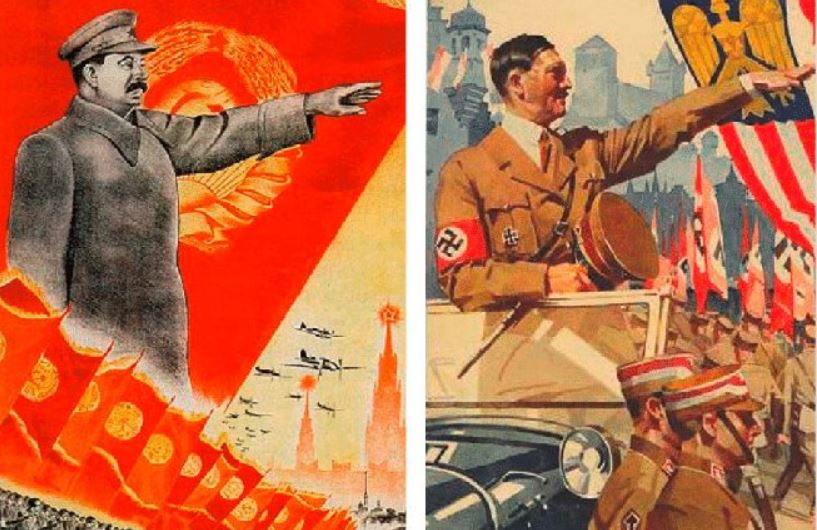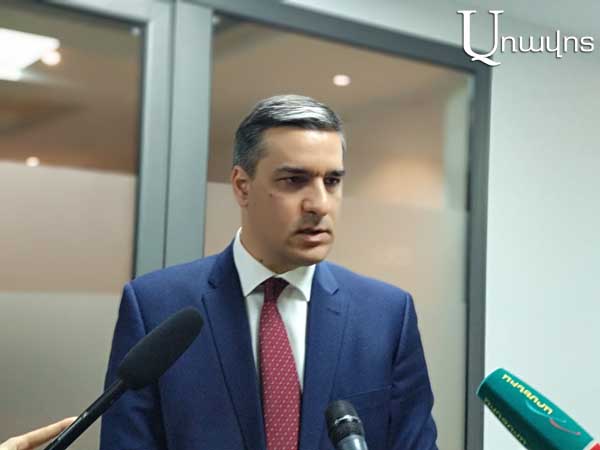What stereotypes have formed in people’s minds over the past decades?
“Totalitarian lawfulness, defying legality and pretending to establish the direct reign of justice on earth, executes the law of History or of Nature without translating it into standards of right and wrong for individual behavior,” wrote the American philosopher Hannah Arendt a few decades ago in her book, “The Origins of Totalitarianism.” Indeed, if we try to describe the essence of totalitarianism, mass repression, state involvement into all spheres, and other well-known phenomena are a consequence, but the reason is to make some abstract “humanity” (but not Man) happy by creating a bright future. And all “disturbing circumstances” must be eliminated on that path. What are they? Of course, they are people who think and act “incorrectly.”
The totalitarian projects of the 20th century, communist and fascist, were based on different visions of building a bright future. In the first case, it was the construction of a society without classes and without exploitation; in the second case, it was the “healing” of humanity by the consistent destruction of “weak” and “incomplete” races and nations; it was the breeding of a new, perfect human being. Fascism (National Socialism) took “natural” patterns as its basis, and Communism “historical.”
Leaving aside the essential differences, it should be noted that in order to implement such projects, it was necessary to “remove” the “wrong” classes or the “wrong” nations. The system in which we live is no longer totalitarian. But psychology, legal consciousness, and political culture are changing much more slowly. There is again a certain idea of a “bright future” in people’s minds (which, of course, is normal), the “coming” of which, however, is associated with the destruction of certain classes or groups. In Armenia, since the mid-1990s, this vision has been formulated with the following simple formula: “oh, let them disappear,” and after 2018, “oh, let them be punished.”
Read also
Unlike the Communists and the National Socialists, the current Armenian authorities do not say what kind of earthly paradise will be built after “punishing them.” But it is not necessary to say that today, people enjoy the process (or rather, in our case, the imitation of the process), not the result. In Armenia, Russia, and almost all countries of the world, totalitarianism has disappeared, but its “traces” remain. There is no mass repression, they have acquired a “point” nature. There is no need to imprison tens of thousands of people, hundreds of people can be persecuted (for example, for “insulting the authorities”) and it is an effective way if the majority a) welcomes it, b) is scared, c) is indifferent.
One month after the 1917 revolution, the Bolsheviks formed the Extraordinary Commission (“Cheka”). The full name of this structure is the All-Russian Emergency Commission against Counter-Revolution and Sabotage. The key words “counter-revolution” and “sabotage” are familiar terms, aren’t they? “Our only fault is that we wanted to do everything according to the law.” Have you heard such rumors? It seems absurd, how can the government “feel guilty” for not breaking the law? But in fact, in my opinion, these rumors are not accidental. This is what is mentioned in the mind quoted at the beginning: the contempt for the rule of law, the demand for emergency measures by the majority. The references to “transitional justice,” “vetting,” and “lustration” are from the same series (I use those words in quotation marks because in a state governed by the rule of law they mean something completely different). “Cheka” does not exist in Armenia. Some functions of this structure are divided between the NSS, the police, other law enforcement agencies, as well as the Ministry of Justice and the Supreme Judicial Council.
Ideology, in the sense that it existed in, say, the communist era, also does not exist. But the “bunch” of ideas that is being presented to the public can replace what we are used to seeing as “ideology” – a tool that helps the rulers retain their seats. What mechanism works here? The main thing here, I think, is to play with people’s emotions. “People” are told that some good things “reach” them, but they is deprived of those good things because there are “evil forces” who have taken them away from the people and appropriated them, and universal happiness will be established when the “bourgeoisie” (Jews, “corrupt regime,” ” foreign agents) disappear. Do you need legal remedies to eliminate it? Of course not. The end of the velvet attitude. Only steel mandate. The worst legacy of totalitarianism, I think, is the destruction of the mechanisms of social solidarity. Solidarity can be achieved through free discussion. The state does not create obstacles for discussing serious issues today. But society is not in demand to discuss such issues. And one of the reasons is the “black and white” thinking that has developed over the decades.
Aram Abrahamyan























































